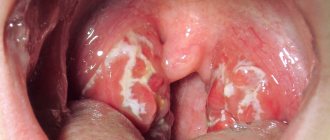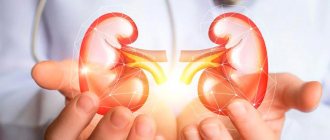A doctor who treats diseases of the rectum in women and men is a proctologist (or coloproctologist). People turn to him to identify and remove hemorrhoids, anal fimbria, polyps, condylomas, as well as to diagnose and treat anal fissures.
The intimate nature of proctological problems gives rise to a lot of fears and questions about proctologists. The mission of the online reference portal Alanclinic.Ru is to help readers understand: answer their questions, dispel doubts and tell in simple language what a proctologist does, for what symptoms you need to make an appointment and where to find an experienced doctor who you can trust with your health.
Who is a proctologist
A proctologist is a doctor responsible for human intestinal health. The list of its tasks includes diagnosing the disease, selecting effective therapy, carrying out prevention and assistance in rehabilitation after surgical treatment or severe disease.
People turn to a coloproctologist with tumor processes, constipation, hemorrhoids, proctitis and other pathologies of a similar nature. The specialist conducts a professional examination and prescribes the necessary diagnostic measures.
Assessing all the nuances of the patient’s general condition and the course of the disease, he prescribes therapeutic procedures, medications, and in some cases surgery.
What kind of doctor is this
Most specialists in this area begin their careers working as hospital surgeons - they perform abdominal and endoscopic operations on various organs of the abdominal cavity and perianal region. And the longer they improve in the surgery department, the better. After all, the work of a coloproctologist is akin to the art of jewelry.
To become a proctologist, you must first train as a surgeon. Then, choose a narrow specialization (proctology) and receive additional education in it. Then years of practice in inpatient hospitals - operations, dressings, rehabilitation measures...
Having gone through this entire long period of formation, the surgeon acquires the most complete understanding of the processes that occur in the internal organs of a person. In the future, he will be able to use the acquired practical knowledge to predict the possible consequences of treating hemorrhoids and other proctological diseases.
How to prepare for an appointment with a proctologist
Since during the appointment the doctor not only collects anamnesis and complaints, but also examines the patient, before visiting the proctologist it is necessary to undergo some preparation, which will take 3-4 days.
A digital examination requires a clean bowel, so before visiting a specialist it is recommended:
- adhere to dietary nutrition;
- take laxatives;
- do enemas.
For several days before taking it, you should exclude from the diet:
- products that cause gas formation: legumes, rye bread, whole milk, as well as raw vegetables/fruits;
- sausages;
- various smoked meats;
- spicy seasonings;
- fatty dishes.
It is important not to drink carbonated or alcoholic drinks during this period.
In the evening before going to the doctor, in the morning on the day of the examination, you need to do enemas to cleanse the intestines. It is recommended to use an Esmarch mug; it gives the best results and is administered once in the absence of constipation. This is enough for an adult.
If there are certain contraindications to an enema, the doctor selects laxatives such as: Microlax microenema, Fortrans, herbal medicine Senade, etc. In case of severe gas formation, enterosorbent is prescribed: Activated carbon, Enterosorb, Polysorb, Espumisan. It all depends on the condition of the intestines, the difficulty of emptying them, and the duration of constipation.
If the patient is undergoing an endoscopic examination, preparation should be carried out more carefully, since in this case the depth of the examination significantly increases:
- Colonoscopy examines the entire colon;
- during sigmoidoscopy, the penetration of the device reaches up to 25 cm, the rectum/sigmoid colon is examined.
If the patient is afraid of the diagnostic procedure, he is prescribed sedatives.
Why is a colon cleanse performed?
As you know, it is impossible to conduct an examination without a cleansing enema. Cleansing the intestines is necessary in order to make an accurate diagnosis and analyze the patient’s condition as much as possible. Visual and hardware inspections will not bring problems or inconvenience; the procedure will be as informative as possible. The cleansing procedure is performed two hours before visiting the doctor. In this case, the patient is given two cleansing enemas, with a break between them of half an hour.
It is recommended to cleanse the body using the drug Microlax. Please read the instructions first to determine the indications and contraindications for the components of the drug. The drug has a double effect. Microlax normalizes metabolism, simplifies bowel movements and softens stool. In addition, the components increase fluid in the intestines. There are no contraindications other than individual intolerance to the drug.
How to use Microlax before taking it? The use of the product is considered convenient and does not cause discomfort. The effect of the medicine is gentle and effective at the same time. You should open the tube with Microlax, press and lubricate the tip. After this, insert the tip into the anus to its full length. Inject the medication into the anus and then remove the tip. The body will be cleansed within a few minutes after administration of the product. Cleansing the body should be carried out three hours before visiting the proctologist.
How does an appointment with a proctologist go?
At the initial appointment, the specialist determines the following factors:
- bowel regularity;
- the presence of impurities in the feces of pus, blood, mucus;
- does discomfort or pain occur during defecation;
- what your daily diet consisted of over the past week;
- Do you have a feeling of incomplete bowel movement after visiting the toilet?
- the presence of additional symptoms: weakness, headache, burning, itching, nausea.
After listening to complaints and collecting anamnesis, the proctologist conducts a visual examination, which determines the presence of fistulous tracts, papillomas, neoplasms, external hemorrhoids, and anal dermatitis. For a thorough, in-depth examination, a special proctology chair is used.
For women and men the procedure is similar. The patient is asked to sit on a chair on his back with his knees bent and his legs spread in different directions. It is important at this moment to overcome embarrassment and completely relax; only with the right psychological attitude will the examination be as comfortable as possible. To reduce the pain threshold, the doctor may use an anesthetic gel.
To make an accurate diagnosis, the proctologist also conducts a manual examination using palpation of the anus. The procedure determines anal fissures, sphincter tone, the presence of hemorrhoids, and the condition of the prostate in men. This is not a very pleasant event, but without it it is difficult to conduct a high-quality diagnosis of some diseases.
| Appointment with a proctologist in Moscow on the same day of treatment | Reception is strictly by appointment, make an appointment by phone: +7 | Prices for services | Reviews about the clinic |
What does a proctologist do?
Proctologists perform various procedures to diagnose, treat and prevent diseases of the rectum and colon.
Urgent help
Urgent action may be required if severe anal bleeding occurs, acute unbearable pain occurs, injury or a foreign body enters. In all these cases, proctologists can provide assistance at the first visit.
Diagnostics
Diagnostic procedures include examination, hardware studies, and tests. Sometimes the doctor can also refer a gastroenterologist, neurologist, urologist, or gynecologist for additional consultation.
Minimally invasive surgical treatment
The word “minimally invasive” means anemic or bloodless removal or excision of tissue. Minimally invasive include:
- laser vaporization
- ultrasound sclerotherapy
- disarterization (Hal-Rar)
- radio wave surgery
- electrocoagulation
- ligation with latex rings
To date, these methods are considered the most effective. Their undoubted advantage is the ability to carry out treatment quickly and painlessly.
Treatment is carried out on an outpatient basis (that is, without hospitalization), under local anesthesia. Almost immediately after completion of treatment, the patient goes home on his own.
After treatment, the patient does not need rehabilitation, special care or a strict diet. He continues to lead his normal lifestyle.
After treatment, the person can work, rest, eat, and can go to the toilet without problems.
Conservative treatment
This is what is commonly called treatment without surgical intervention - with the help of ointments, suppositories and other types of drugs.
As a rule, such treatment gives a short-term effect - it relieves pain and bleeding for a while. It is not possible to get rid of rectal diseases only with the help of medications.
But they help well after minimally invasive surgery. When used correctly, ointments and suppositories accelerate tissue regeneration and improve blood circulation.
What tests are done by a proctologist?
The patient is required to undergo the following laboratory tests:
- coprogram;
- occult blood test;
- general blood analysis.
In case of hidden bleeding, general clinical analysis may show the development of anemia. The coprogram indicates a large number of indicators that make it possible to differentiate various diseases of the intestines and other digestive organs. The study reveals fungi, inflammatory processes, and helminthiasis.
During the analysis, pathological impurities, undigested elements, proteins, carbohydrates, and fats are determined. The external characteristics of feces, consistency, and smell are assessed.
An occult blood test is carried out in the presence of pain, constipation and other phenomena where the presence of impurities cannot be visually detected. The examination also indicates hidden bleeding. Due to the high sensitivity to even the slightest negative factors, the procedure requires additional preparation. The result can be affected not only by human hemoglobin, but also by hemoglobin from eaten fish and meat.
Before analysis you must:
- seven days before stopping taking NSAIDs, iron, aspirin, bismuth;
- 3-4 days in advance, exclude from the daily menu: fish, meat, fruits, vegetables;
- Stop brushing your teeth within two days, as the hygiene procedure can cause microtraumas in the oral area.
To obtain the most accurate result, it is important to strictly follow all of the above points.
Make an appointment with a proctologist by phone or by filling out the online form
| Select a clinic | Gastroenterologist | Abdominal ultrasound | Calling a proctologist to your home |
What diseases does a proctologist treat?
A specialist in this profile is engaged in the diagnosis, prevention, and treatment of the following intestinal diseases:
- presence of foreign bodies;
- tumor formations;
- polyps;
- bowel prolapse;
- proctitis;
- injuries, anal fissures;
- colitis.
People consult a proctologist with such pathologies as: papillitis, anococcygeal pain syndrome, helminthic infestations, colon diverticula, paraproctitis, epithelial coccygeal tract.
Symptoms for which you need to visit a proctologist
It is recommended to make an appointment with a proctologist for women planning a pregnancy, people who are overweight, have a sedentary lifestyle, or have a sedentary job.
A preventive examination is necessary for everyone who eats improperly and abuses fatty, smoked, and spicy foods. Also, consultation with a specialist is necessary for pregnant women, women in labor, patients who have undergone surgery in the rectal area, anyone who has poor heredity and close relatives with intestinal cancer. It would not hurt to visit a doctor for people who often take laxatives and practice anal sex.
You should urgently make an appointment with a proctologist or call a doctor at home if the following symptoms appear:
- pain syndrome of varying intensity and nature in the rectum and anus;
- purulent, bloody, mucous discharge from the rectum;
- bumps, sores, tumors, redness, pustules or other uncharacteristic formations in the anal area;
- itching, burning, feeling of a foreign body in the anus;
- pain during bowel movements;
- constipation and other difficulties with bowel movements;
- trauma to the anorectal area;
- exit of the hemorrhoid.
Also, the help of a qualified specialist will be needed in the presence of a foreign body, aesthetic changes in the anal canal, or the appearance of condylomas or papillomas in its area.
The following should be cause for concern and immediate contact with a proctologist:
- The appearance of acute pain in the anus or rectum
- Persistent constipation and pain during bowel movements
- Alternating constipation with diarrhea.
- The appearance of blood or mucus in the stool.
- Discharge from the anus of mucus and pus
- Pain and discomfort before, during, or immediately after bowel movement.
- The appearance of pain when standing or sitting, as well as when walking.
- Swelling and bumps around the anus.
- Seals that interfere with stool.
- Itching and burning in the perineum and anus.
- Growths or holes, especially with the release of pus from them and accompanied by pain and malaise.
What diagnostics does a proctologist perform?
After making the initial diagnosis, the proctologist prescribes the following diagnostic measures as necessary:
- Rectromanoscopy
- Anoscopy
- Sphincterometry
- Colonoscopy
- Dye test
- Biopsy
- Irrigoscopy
- Ultrasound
- DNA diagnostics
During the examination, a special device is used, which is inserted approximately 25-35 cm. Using magnifying optics, the doctor can detect even small deviations from the norm. If necessary, medical equipment will allow you to take biological material for subsequent histological studies. The procedure is recommended for all people over 40 years of age.
Instrumental diagnostics are intended to examine the inner surface of the rectum. The device is inserted through the anus to a depth of 14 cm. Most often, the event is included in the diagnostic complex and is used to confirm a particular disease.
The examination determines the quality of functioning of the intestinal sphincters. A special device helps measure pressure, evaluate continence function and muscle function. All received information is transmitted through the sensor to a PC and stored in the computer’s memory.
This is a fairly informative method that makes it possible to view 90% of the intestines. The examination is classified into classical and capsule methods. In the first case, a probe is used; in the second option, the patient swallows a capsule with two cameras, which record the studied studies.
The dye is transported through the fistula. The resulting color tells about the disease and helps to identify purulent pathologies. Recommended in combination with colonoscopy.
Determines the cause of the appearance of neoplasms. The optimal method for early diagnosis of oncology.
X-ray diagnostics reveals: anatomical defects, obstruction, neoplasms, diverticulum. Prescribed for constipation. Before the examination, a contrast agent is injected and only after that photographs are taken.
Ultrasound examination is a safe, accessible, informative method that identifies a large number of pathologies, including metastases, internal opening of the fistula, tumors, etc.
Identifies genetic predisposition to cancer in the intestinal area.
Based on the overall picture, the proctologist selects the type of diagnosis that will help clarify, confirm or refute the primary diagnosis.
How is the intestine checked?
To determine the tone and functionality of the gastrointestinal tract, the coloproctologist has a wide range of modern techniques that allow the patient to quickly and painlessly detect pathology even at an early stage.
The main method of examination is anoscopy, performed using an anoscope - a hollow tube with a light source. The purpose of anoscopy is to visually assess the condition of the mucous membrane of the lower rectum. The patient is placed on the couch on his side and asked to press his legs to his chest. Then the coloproctologist carefully inserts the anoscope to a depth of no more than 14 cm. If necessary, topical anesthesia can be used. The study is not carried out in case of acute inflammatory reactions; in all other cases it is mandatory when visiting a proctologist.
A more informative examination is sigmoidoscopy or its modern analogue - video sigmoidoscopy. Unlike anoscopy, it allows you to study the condition of not only the rectum, but also the sigmoid colon.
The device for video sigmoidoscopy is a flexible thin tube, at the end of which there is a light source and a miniature camera. The patient is asked to take a knee-elbow position, after which the device is slowly inserted into the anus to a depth of about 40 cm. The examination is painless and in most cases is performed without anesthesia. With its help, the coloproctologist receives accurate data on the condition of the intestinal mucosa and can detect ulcers, polyps, and areas of bleeding.
Another diagnostic technique in proctology is colonoscopy, which allows you to examine the rectum along its entire length. The procedure is performed under local anesthesia if Crohn's disease, intestinal tumors, or ulcerative colitis are suspected.
Prevention of proctological diseases
Prevention of proctological diseases consists of observing the following simple rules:
- Move more, lead an active lifestyle. It is recommended to play sports, walk more, and take walks. For people with sedentary jobs, it is important to set aside time to exercise, go to the pool or go to the gym. Also a good option would be to avoid the elevator and regular car trips.
- Watch your stool. At the first problems with bowel movement, it is necessary to take additional measures: give an enema, take laxatives, consult a doctor. People suffering from constipation need to include fermented milk products, more vegetables and fruits in their diet. It is important to drink plain still water regularly, especially in the morning and before bed.
- Maintain a dietary regime. There is no need to overload your diet with unhealthy, fatty, spicy, heavy foods. It is recommended to exclude baked goods, canned food, smoked meats, and fast food from the menu.
- Avoid stress and nervous tension. You shouldn’t worry about little things and it’s better to smooth out conflict situations without bringing them to a peak. The calmer your nerves, the stronger your health. If you can’t cope with your emotions on your own, you need to take herbal sedatives for a while.
To strengthen the nervous system, it is advisable to spend more time in the fresh air, introduce positive emotions and events into your life, relax more often, and eliminate alcohol.
It is also very important to visit a proctologist at least once a year, especially after 40 years, when the risk of developing intestinal diseases increases.
Man's proctologist appointment
An appointment with a proctologist is similar for both women and men. The main difference is that the specialist, in addition to diseases characteristic of both sexes, identifies diseases that are characteristic only of the male body, for example, prostate adenoma.
The examination is carried out in a proctology room equipped with a special chair or couch. The patient is placed in a lying position on his side or on his back. In the first case, the legs are pulled towards the stomach and bent at the knees; when placed in a chair, the legs are moved apart.
Before starting the manipulations, the doctor gives an anesthetic injection or uses anesthetic ointments, gels, and creams.
Main stages of inspection:
- collecting anamnesis, familiarization with symptoms, complaints;
- identification of hereditary diseases and causes;
- visual familiarization with the perineal area;
- digital examination;
- sigmoidoscopy;
- anoscopy.
If necessary, colonoscopy and irriography are prescribed.
Proctological diseases in men occur against the background of a sedentary lifestyle, during the natural aging process, and with poor nutrition, which leads to regular constipation. Very often, the help of a proctologist is needed by truck drivers who spend a lot of time driving, office workers, lovers of spicy, smoked, fatty foods, as well as those who practice anal sex.
FAQ:
What contributes to proctological diseases?
- Passive lifestyle
- Improper nutrition (diet, drying athletes)
- Heredity
- Late pregnancy
What is the difference between a proctologist and a coloproctologist?
Coloproctologist is a modified name for a specialty that was previously called “proctologist.” There is no difference between these doctors; the name was changed by the Ministry of Health of the Russian Federation in 1997 in order to comply with international medical standards.
Is it possible to do anoscopy during menstruation?
Menstruation is not a contraindication for anoscopy and sigmoidoscopy. These methods cannot damage internal organs, but may increase pain and increase the amount of bleeding. It is recommended to choose days for research a week before or immediately after the end of menstruation.
Consultation with a woman proctologist
Women are recommended to visit a proctologist in the following cases:
- pregnancy planning;
- pregnancy period;
- after childbirth;
- for problems with bowel movements;
- when blood, mucus, pus and other uncharacteristic manifestations appear in the stool.
It is very important to regularly visit a doctor as a preventative measure for women who are overweight, lead a sedentary lifestyle, have crossed the threshold of forty years, or are not eating properly.
Is there a difference between a proctologist and a coloproctologist?
A proctologist and a coloproctologist are one and the same specialist. The reason for the different names lies in the following: previously, a doctor who deals with diseases of the large intestine and rectum was called a proctologist. Translated from Latin, “proctos” (from which the name of the discipline comes) means “anus.” Since the name proctologist did not fully correspond to the range of diseases that this specialist dealt with, in 1997 “proctology” was renamed “coloproctology” (“colon” in Latin means large intestine), and the doctor of this discipline was renamed coloproctologist.
Appointment with a pediatric proctologist
Working with children is a special mission for every doctor. The specialist must have knowledge in pediatrics, the ability to get along with young patients and easily gain their trust.
A pediatric coloproctologist is most often contacted with the following pathologies:
- anal fissures;
- regular constipation;
- discharge of various types from the rectum, fecal incontinence;
- hemorrhoids, intestinal prolapse;
- polyps, papillomas;
- neoplasms.
Doctors diagnose and treat congenital anomalies, hypoganglionosis, inflammation, intestinal and anal injuries, sphincter hypotension, fistulas, postoperative hernias.
If you experience symptoms such as pain, discomfort during bowel movements, frequent constipation, fecal incontinence, redness around the anus, or the appearance of tumors, you should urgently consult a specialist. The doctor will prescribe examinations, make a diagnosis and identify the cause of the pathology.
Long-term constipation can cause injury to the intestinal walls. Injuries also appear due to scratching due to pinworms and careless administration of an enema. If treatment is not carried out in time, small cracks will develop into ulcers.
Young children are not always able to independently identify the problem, so the level of responsibility of parents plays an important role, who must carefully monitor changes in the child’s condition and mood and contact a proctologist in a timely manner so as not to prolong the disease and not aggravate subsequent treatment.
What is his job?
Proctology is a field of clinical medicine that diagnoses and treats problems of the lower intestine and adjacent tissues. Since 1997, this specialization has been renamed coloproctology, but the first name is still retained. This area of science about the human body is still developing, its specialists are developing new diagnostic and therapeutic technologies.
Content:
- What is his job?
- What diseases are treated by a coloproctologist?
- Reasons for visiting a doctor
- How to prepare for an examination
- What to expect at your appointment
- Doctor's advice on disease prevention
The competence of a proctologist includes the treatment of diseases of the colon, anorectum, and anus. The specialist conducts examinations, analyzes research data, makes a diagnosis and decides what treatment will be. His responsibilities also include the development of new treatment methods and introducing patients to the rules for preventing exacerbations and relapses. Despite the general habit, it is correct to call such a doctor a coloproctologist.
In medical practice, there are two directions in the work of this specialization: surgical and therapeutic. The first is aimed at solving urgent problems caused by intestinal diseases and oncological problems. For example, this could be bleeding or fissures in the anus, polyps and tumors. Therapeutic coloproctology is aimed at the systemic treatment of colitis of various etiologies. Both of these sections fall within the scope of activity of a proctologist.
Diseases of the anorectal region, lower intestine and adjacent tissues can be caused by various reasons. This area of the body is affected by bacteria, viruses and fungi. Such a location is a very favorable place for the rapid development of pathogens. Therefore, illnesses in this case progress quickly, cause severe discomfort to the patient and can lead to complications. Despite this, patients often put off visiting a specialist, since such diseases are quite sensitive. Meanwhile, doctors warn that timely consultation prevents further complications.
Calling a proctologist to your home
Our clinic offers. Each person can dial our phone number and invite a doctor to his address at a convenient time. Reception at home has many advantages and provides an opportunity for some categories of citizens to receive qualified medical care.
The main advantages of the service include:
- high speed of doctor arrival;
- the opportunity to take a number of tests and get their results without leaving home;
- more thorough inspection and lack of distractions.
At home, the patient feels more relaxed, which allows the delicate examination procedure to be carried out as thoroughly and informatively as possible.
In addition to people who constantly lack time to visit the hospital, the service will become indispensable for bedridden patients, elderly patients, disabled people, and young mothers on maternity leave.
How to make an appointment with a proctologist
In order to make an appointment with a doctor, you can personally visit our medical center and go to the reception desk. There is a simpler and more convenient way - call the clinic numbers indicated and choose a convenient time.
During a telephone conversation, the operator can inquire about existing symptoms, ask the patient’s age, and clarify his personal and passport details. If you want to call a specialist to your home, you must provide your address. It is also important to find out what preparation is required. Before visiting the doctor, you need to comply with all the requirements, otherwise the proctologist will be able to conduct a full examination.
Where to go to a proctologist
Our medical center offers competent, high-quality proctological care. The clinic is distinguished by modern technical and instrumental support, equipped proctologist's offices, laboratories, and excellent instrumental diagnostics. The optimal equipment of the center allows you to undergo all the necessary examinations and therapeutic procedures in one place, which seriously saves time, effort and nerves.
The clinic employs experienced doctors of the highest category and qualified medical personnel. An individual approach is provided to each patient, which means that before prescribing therapy, the specialist takes into account all the characteristics of the condition, the body, the course of the disease and the causes of the disease.
How and where to apply: paid and free
Where can I find a proctologist? Who receives patients in free clinics at their place of residence under the compulsory medical insurance policy if there is no proctologist? Do I need to go to the hospital for hemorrhoids? What is the difference between a paid examination by a proctologist and a free one?
Many people faced with proctological symptoms ask similar questions. We will try to answer them.
Doctors who have the right to examine and treat proctological diseases work:
- in clinics at the place of residence;
- in hospitals - city, regional or republican;
- in paid medical centers.
Let's look at the features of each option.
Polyclinic at your place of residence (compulsory medical insurance)
In most clinics, the duties of a coloproctologist are performed by a surgeon. For diagnosis, a digital examination is performed. To relieve you of suffering, the surgeon can only prescribe ointments, rectal suppositories and oral medications.
This helps temporarily relieve itching, pain and stop bleeding. But it does not cure the disease. And, unfortunately, in such conditions it is often impossible to establish an accurate diagnosis.
Therefore, if pharmacotherapy does not help, and the symptoms return, the surgeon can give a referral to the inpatient department of the hospital to which this clinic belongs.
Coloproctology department of the hospital
You can get here in two ways - by referral from a surgeon at your place of residence or by ambulance. Proctologist services can be obtained here both for a fee and for free. This depends on many factors, primarily on internal rules for providing assistance to the population.
For example, it may matter whether you live in the same city or are a newcomer. Do you belong to the categories of patients who have the right to receive medical services under a quota? At the time of your application, is it possible to accept you under a quota? If not, they will put you on a waiting list or offer you treatment for a fee. If the patient is in critical condition and is brought by ambulance, he will be provided with emergency care.
In general, if you decide to see a proctologist in a hospital hospital, you can find out the details on their official website, on directory websites, or at the clinic at your place of residence. We recommend that you thoroughly find out what the application procedure is, what documents need to be collected, what tests need to be taken, and what form to take for a medical examination. When visiting a hospital, a huge number of similar nuances and questions may arise, the complete answers to which, perhaps, only the staff of these hospitals can give.
Paid medical centers, specialized private clinics
Getting into a paid clinic is usually the easiest way. Just call or leave a request on the clinic’s website.
Over the phone, you will be asked a few simple questions to make sure that you really need to be examined by a proctologist.
The following will explain in detail:
- how to prepare for the appointment and examination;
- what is included in the initial consultation;
- how the diagnosis is carried out - on what equipment, in what position, how many minutes it lasts, what the doctor does, etc.;
- what doctors work in the clinic - their work experience, achievements, regalia.
Then they will offer a day and time when you can come for an appointment and get examined. If the clinic is serious, then appointments are carried out only by appointment - so as not to force patients to wait in the corridor, but to come on the appointed day and time and immediately get in for a consultation.
Paid or free: is there a difference?
PAID
- There are many proctologists in the clinic. Therefore, reception is carried out daily in two shifts, seven days a week. Patients are treated by doctors who specialize in proctology and have many years of practical experience in performing surgical operations in hospital settings.
- Comprehensive examination using hardware methods. Accurate diagnosis on the day of treatment.
- Non-surgical hardware treatment methods. Bloodless surgery: laser, ultrasound or radio wave.
- All necessary tests can be taken directly in the same clinic. There is no need to collect documents or undergo a medical examination.
- All without queues.
- Complete treatment in 1-2-3 procedures. No hospitalization. Fast healing after therapy. Virtually no restrictions. You can go to work even on the day of the procedure.
FOR FREE
- Difficult to get in. There are few doctors. The result is an inconvenient work schedule.
- Inspection and finger examination only. Establishing an accurate diagnosis on an outpatient basis is not always possible due to the lack of special equipment in clinics.
- Prescribing ointments and tablets for temporary relief. If it doesn’t help, a referral to a hospital for surgery.
- To get to the hospital, you need to collect documents, undergo a medical examination, and take tests yourself.
- Queues can range from several days to several months.
- A serious operation requiring hospitalization and long-term rehabilitation. Lots of prohibitions, restrictions and rules for recovery.
Do I need to go to hospital for treatment?
If you go to a clinic at your place of residence, there is a fairly high probability that you will be offered to go to a hospital.
In a paid center, all manipulations will be performed on an outpatient basis (without hospitalization), in 1-3 visits to the doctor.
How are proctological diseases treated?
Therapy should be selected by a qualified doctor after an accurate diagnosis has been made. The course of complex treatment depends on the examination results.
Conservative therapy includes:
- laxatives - to combat constipation;
- antibiotics - to eliminate inflammatory processes and prevent the spread of infection;
- immunomodulators - to increase immunity and body resistance;
- antiviral drugs - to reduce the activity of viruses;
- probiotics, prebiotics – to improve intestinal microflora;
- antiallergic medications – to prevent allergies to taking a large number of medications;
- blockades, painkillers - to relieve pain;
- vitamins - to normalize metabolism and improve general condition.
Rectal ointments, suppositories, creams, and gels are also often prescribed, which relieve inflammation, irritation, and have an anti-inflammatory effect. It’s a good idea to add warm baths with herbal infusions and compresses to the overall complex.
Surgical intervention is recommended for severe forms of hemorrhoids, condylomas, anal fissures, polyps, oncology, as well as in case of ineffective conservative treatment.
Modern technologies make it possible to carry out operations in a gentle manner; the following techniques are used for this:
- Sclerotherapy.
- Radio wave therapy.
- Laser coagulation.
- Cryodestruction.
- Infrared photocoagulation.
Abdominal radical operations are prescribed for complete removal of an organ. During the treatment process, it is important to follow a diet, lead an active lifestyle, perform regular personal hygiene and reduce stress.
How often should you visit a proctologist?
It is recommended to visit a doctor of this profile at least once every two years until the age of 40; after forty, a preventive examination should be done once every 12 months. The older a person gets, the more often he may need the help of a proctologist.
Also, consultation with a specialist is necessary as needed if appropriate symptoms are present. If the first signs of proctological pathologies appear, it is important to consult a doctor in a timely manner in order to diagnose the disease in the early stages and begin therapy on time.
What diseases are treated by a coloproctologist?
In addition to the most common diseases caused by infection, such a doctor also treats other intestinal ailments. His areas of specialization include congenital pathologies, oncological formations, and mechanical injuries.
Depending on the nature of the disease, the doctor provides surgical assistance and prescribes medication, monitors the progress of therapy until the problem is completely resolved.
A proctologist deals with the following diseases:
- rupture of the mucous membrane in the anus (crack), hemorrhoids, inflammation of the colon - colitis;
- rectal prolapse;
- dysbacteriosis, polyposis, rectal ulcers;
- paraproctitis, coccyx cyst, oncological formations
- infestation with worms;
- bowel disorders: constipation, diarrhea, incontinence;
- removal of foreign bodies.
Scientists call colorectal cancer the most common problem in this area.
Among all cases of cancer, it ranks third and continues to progress.
The WHO Secretariat notes that the increased mortality from this disease is caused by late patients seeking help and the lack of an effective treatment system (WHO cancer incidence data for 2021). Scientists are also very concerned about hemorrhoids, which are becoming more common.
This phenomenon is caused by dilation of the veins in the lower intestine, which causes nodes to appear that bleed and hurt.
Hemorrhoids can be caused by many factors: physical stress, sedentary work, childbirth, alcohol abuse, excess weight.
Due to the wide range of medications available without a prescription, patients often make the situation worse. Instead of undergoing minor treatment in the early stages, patients take the disease to a chronic course.
Preventive examination by a proctologist
A preventive examination by a doctor takes place in a specialized office, where the proctologist interviews the patient, finding out how he feels, whether there are any uncharacteristic discharges, problems with bowel movements, or pain. How often does a person go to the toilet “at large”, and is there any discomfort when doing so?
After the interview, the patient is placed on a couch or a specialized proctology chair, where palpation, anoscopy, and rectoscopy are performed.
Preventive examination also requires preliminary preparation, more detailed information about which can be obtained from our specialists by calling the indicated numbers.
It is worth remembering that clinical examination very often helps to identify dangerous diseases as early as possible, which in most cases guarantees a positive prognosis.
Reviews
Review from 07/23/2018 ()
Of all the doctors with whom I had the opportunity to communicate, consult and learn about treatment methods, Denis Valerievich Bogdanov was pleasantly surprised. This specialist at the Hippocrates 21st Century MC has a truly individual approach to the problems of his patients. In addition, the doctor himself is sensitive, responsive and wishes his patients only the best and a speedy recovery, and also makes every effort to achieve this. A pleasant impression is formed not only during the first appointment: further visits also take place in a pleasant atmosphere, without undue intrusiveness, and the right to agree to procedures or not remains purely with the patients.
Source: prodoctorov.ru
Review from 05/30/2018 ()
After reading a large number of positive reviews, I made an appointment with Denis Valerievich. Verdict: Bogdanov’s patients don’t lie. Attentive, tactful, friendly. He explained the essence of the problem in detail and clearly (without loading it with medical terms). I felt comfortable during my appointment in this office. I definitely found my doctor! Nurse Olga gets 5+ for her work. Best regards, Galina.
Source: prodoctorov.ru
Review from 03/14/2018 ()
One name says it all. Bogdanov - given by God! Thank you so much for your professionalism, for your tactful communication, for your golden hands! There should be more doctors like this!
Source: prodoctorov.ru








